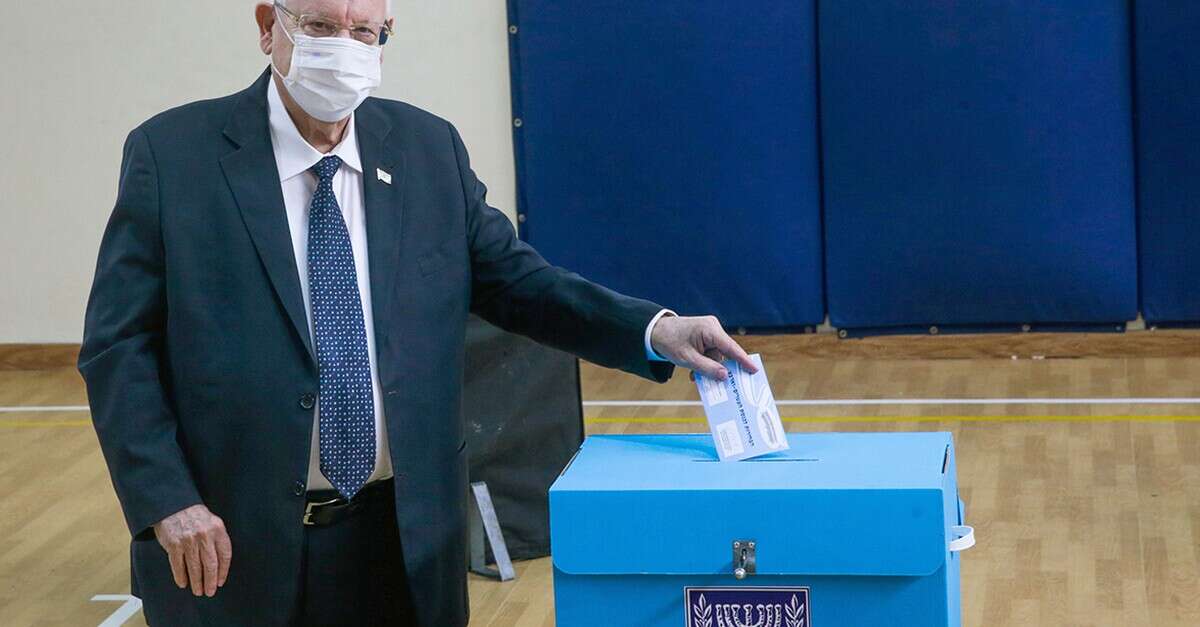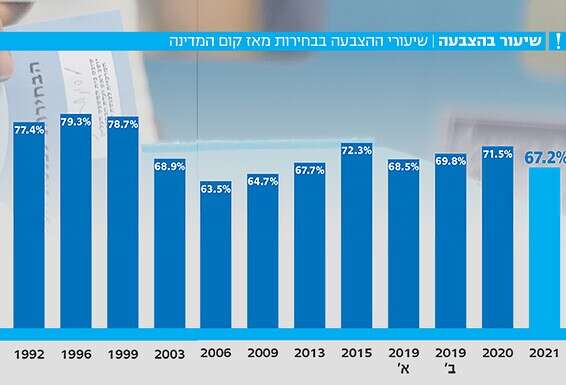
President speaks on Election Day // Photo: GPO
How soon should the president end the consultations?
The law requires the president to end the consultations within seven days (until April 7) and announce who has decided to impose the government train. He was required to summon him to the Presidential residence to inform him officially and give him the letter of appointment.

Does the president have to convene all the factions for consultations?
No. The law does not require the president to summon everyone. The law states that “the president will consult with the representatives of the factions in the Knesset,” but over the years there has been a tradition that the president invites the representatives of all the factions elected to the new Knesset.
What happens in consultations?
President Rivlin has changed the practice that has existed all these years. The previous presidents used to hold talks in closed rooms and then issued a laconic announcement about their content or that party representatives leaked details of the talks to the media.

Does the president have to put the job on the head of the largest faction or on whoever heads the largest bloc?
Basic Law: The government gives the president broad authority in this matter. He states that “once a new government is formed, the president will … entrust the task of forming a government to one of the Knesset members who has agreed to it.” That is, the law does not oblige the president to impose the post on whoever heads the largest party nor on whoever heads the largest bloc, but on the candidate who in his eyes is most likely to form a government.
Were there cases in the past where a party that won the largest number of seats did not receive the mandate to form a government?
Definitely. After the 18th Knesset elections in 2013, then-President Shimon Peres was debating whether to impose the post on Tzipi Livni, who headed the Kadima faction because she received 28 seats, or on Netanyahu, the Likud leader who received 27 seats. Eventually the president assigned the task to Livni, but representatives of the factions representing 65 MKs informed her that they would only join the Netanyahu-led government. Livni was forced to relinquish the post and the president assigned Netanyahu the role of train of government.

Does the president have an influence on the composition of the government?
for sure. Past experience shows that it can have a big impact. Remember some cases where the president exercised all his weight. The most prominent example was after the 11th Knesset elections in 1984. The results indicated equality between the right and left blocs. The party won 44 seats and the Likud 41 seats. Then-President Haim Herzog persuaded the leaders of the two major parties, Peres and Shamir, to form a national unity government.
How long will it take for the prime ministerial candidate to form a new government?
The candidate has 28 days to persuade potential coalition partners to join and support the government, sign its guidelines and conclude which cases will be handed over to them.
Does the president have to give the candidate an extension if he has failed to form a government within the period of time made available to him?
No. The law allows the president to give the prime ministerial candidate an extension of no more than 14 more days, but he does not have to do so.
What will happen if, even after the Knesset elections, 24 of the candidates fail to form a government?
The meaning of the situation – dispersal of the Knesset and holding of fourth elections within 90 days. There is also an option for 61 MKs to address the president and ask him in writing to impose the post on another MK who has agreed to it. In this case, the president has no discretion and must assign the position to the same MK within two days. The same MK will have 14 days to complete the task.